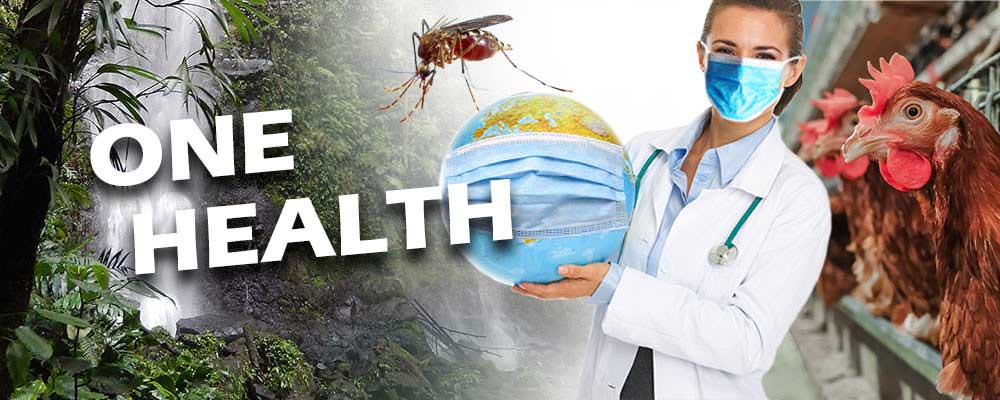


The links below relate to global health and identify organizations and institutions that promote One Health concepts, emphasizing the importance of the connections between humans, animals and the environment.
With a focus on biodiversity, this international organization examines and researches relationships between wildlife, ecosystems and human health.
This global group works to safeguard the natural world by bringing together the world's most influential experts and organizations by working with conservation, environmental and ecological issues. The areas of focus are business and biodiversity, climate change, ecosystem management, environmental law, forests, gender, global policy, governance and rights, marine and polar, nature-based solutions, protected areas, science and economics, species, water and world heritage.
The focus of The National Wildlife Health Center is to embrace the One Health concept by advancing wildlife health. This in turn will benefit animals, humans and the environment. National and international wildlife health issues are addressed by offering information, technical assistance and research data. Wildlife health problems are addressed through disease surveillance, diagnostic services and research studies.
To protect endangered species and threats to the environment, the Smithsonian-Mason School of Conservation (SMSC) provides conservation programs to students at the high school level through college level, as well as other professionals. Students explore environmental, climate and international affairs issues and areas of concern. By offering hands-on experiences, the Smithsonian-Mason School of Conservation hopes to inspire students and participants to make changes that will sustain biodiversity conservation of our planet.
The Wildlife Conservation Society's goal is to save wildlife and wild places around the world. In order to achieve this goal, their action plan examines how the health and welfare of people are closely connected to the health of wildlife and wild areas. Field conservation currently includes operations in approximately 60 nations around the world. Additionally, the organization provides memorable experiences with wildlife through the operation of zoos, often the only opportunity many will ever have to see wildlife firsthand. Their parks include:
Embracing the One Health concept, this organization provides veterinary aid and services to developing areas around the world. Spanning 48 countries, World Vets maintains five programs to help animals: Veterinary Field Service Programs, Disaster Response Program, Marine Mammal Rescue and Response, Training Programs, and Civil-Military Humanitarian Aid. World Vets strives to provide experienced veterinary care to all animals around the world and help less fortunate animals.
WWF strives to conserve nature and reduce threats to the diversity of life on Earth by concentrating on programs in the following areas: food, climate, freshwater, wildlife, forests and oceans.
We're ALL in this TOGETHER.
Their future depends on it.

Complete the online application if you are interested in attending a Conservet summer externship in 2023.
Once we receive your application, we will contact you to provide you with more information.

Conservation Veterinary Medicine
Animal, Human and Environmental Health Connection